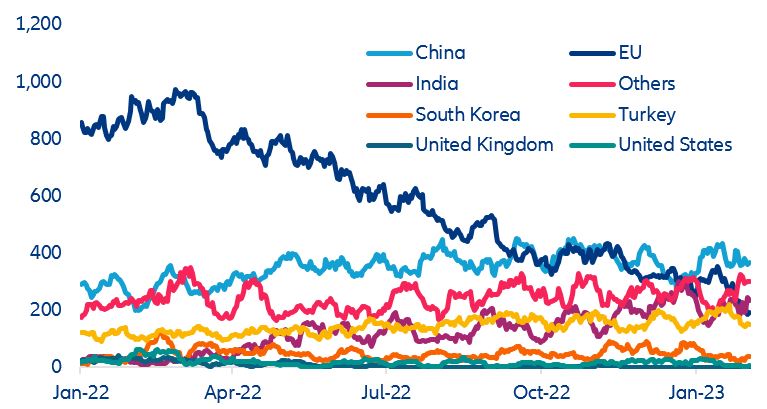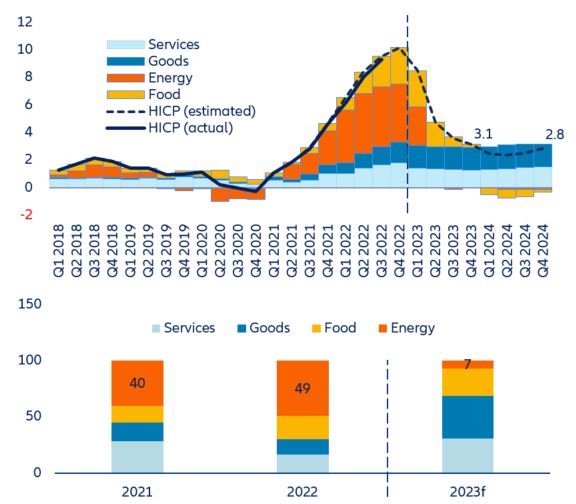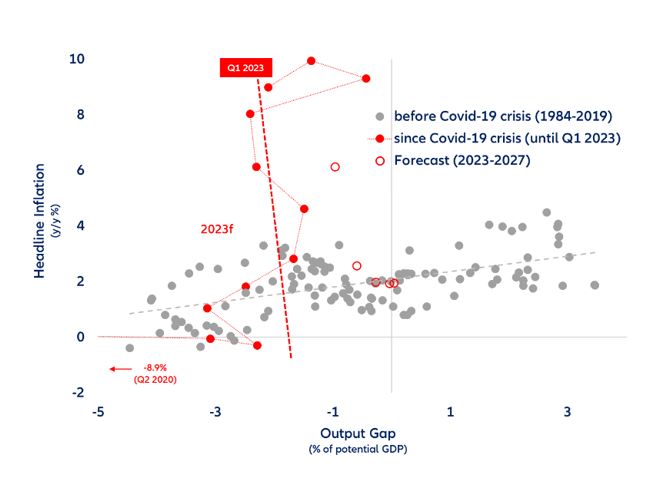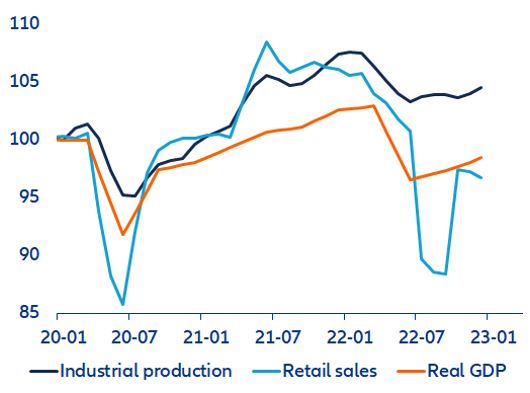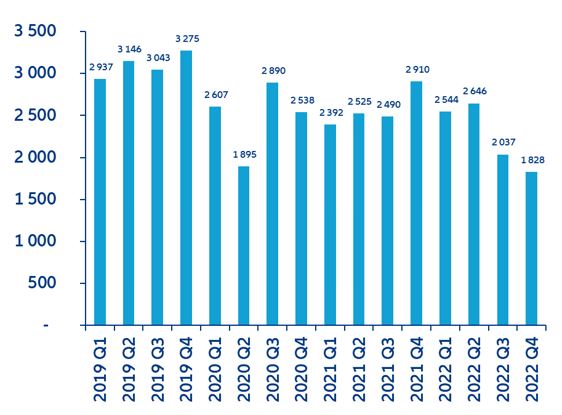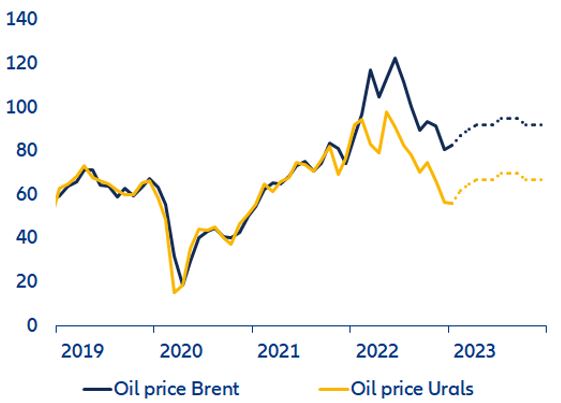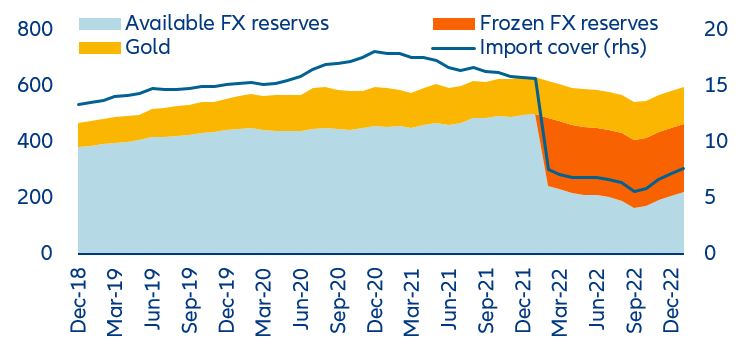Ukraine’s economy is expected to stabilize this year, but downside risks loom large. After a contraction of output by -34% last year, we expect real GDP to grow marginally by about +1% in 2023. However, the ongoing war creates large downside risks to the economic outlook, especially the ongoing destruction of vital infrastructure, such as Ukraine’s power grid. Since October 2022, electric power has been rationed in Ukraine through rolling blackouts. The annual rate of inflation has accelerated from 10% to more than 25% and shows no signs of abating. Both growth and inflation outturns have put enormous pressure on fiscal accounts despite large-scale foreign aid. Ukraine’s public deficit has quadrupled, increasing public debt by 40pps, with gross external debt reaching 90% of pre-war GDP. The Ukrainian currency has also lost a fifth of its value against the dollar.
The rebuilding process needs to start as soon as possible to strengthen the country’s socio-economic resilience, but the reconstruction of Ukraine will be costly. The painful experience of past wars has taught us what it takes to rebuild countries ravaged by armed conflict. Aside from the immeasurable human suffering, wars destroy infrastructure, disorganize production and reshuffle trade flows. And they tend to bankrupt governments as economic activity collapses while debt builds up. If we take the post-WWII reconstruction of Western Europe as an example, the scale of the Marshall Plan in today’s purchasing power terms is comparable to the estimated re-building costs for Ukraine over the next 10 years (up to EUR1trn).
However, Ukraine cannot do it alone amid surging public debt and a rising fiscal gap. The cost of rebuilding infrastructure alone will likely require at least EUR300bn (incidentally the same amount that was required to upgrade infrastructure in East Germany during Germany’s reunification) – that is three times Ukraine’s total (fiscal) budget last year. Already in September, in its Rapid Damage and Needs Assessment (RDNA), the European Commission (together with the Government of Ukraine and the World Bank) estimated that the current cost of reconstruction and recovery in Ukraine amounts to EUR349bn. In the meantime, as the war drags on, this figure has more than doubled. So, for a credible commitment to rebuilding Ukraine, private external financing would need to complement public sector finances and development aid.
The priority will be investment in infrastructure, health services, housing and schools, as well as digital and energy resilience for a sustainable recovery and reconstruction. This will (i) increase Ukrainian refugees’ willingness to come back home, (ii) improve logistical (and trade) links to Europe and (iii) boost private investors’ appetite for investments in the country. We believe that this will require at least EUR100-150bn of private investment (in addition to EUR350bn of foreign aid).
Greater public-private collaboration can also help create a suitable investment climate, which is also an objective of the EU’s Rebuild Ukraine Facility. Attracting sufficient private investment would require further modernizing the state and its institutions; this will boost governance and respect for the rule of law, including permanently reducing the undue political influence of oligarchs.
Two essential elements need to be in place for this to work – credible security guarantees and foreign economic assistance. Without security guarantees to deter renewed Russian aggression, Ukraine will struggle to attract back human capital and import private foreign capital. The West needs to provide Ukraine with such credible guarantees (or some public sector backstop for businesses that invest in Ukraine while the country remains under attack). In addition, without generous foreign aid until the war ends, Ukraine’s economic recovery will be protracted; this might jeopardize both its young democracy and its gradually improving security situation. There is lots of goodwill in favor of Ukraine, but foreign aid is still too little. Greater coordination among supporting countries will be necessary, especially when the time comes to negotiate war reparations with Russia (in the form of reserve assets, securities, or contributions-in-kind, such as raw materials, oil, and gas.


